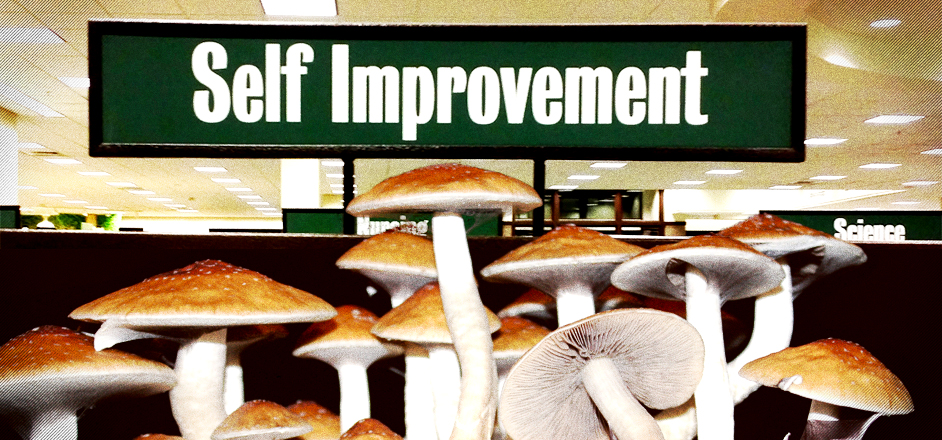Thanks to antiquated beliefs from the much-maligned War on Drugs, narcotics have the unsavory reputation as being the reason why people lose their teeth, destroy their relationships, and sleep outside in rain-soaked cardboard boxes.
Not everyone takes drugs to drop out and be bums though. Some people take them to achieve glory, and no one is guiltier of this than entrepreneurs. Especially those working in the fast-paced world of technology.
From stimulants to psychedelics, narcotics of the very illegal variety are helping these forward thinkers achieve big things and change the world.
Adam Wiggins, for example, is not exactly a dope or a loser. He is a multi-millionaire programmer who co-founded a cloud computing company, Heroku, in San Francisco, before selling it for a fortune. Now he lives in Berlin and consults for startups.
By some measures, millennials are doing as many psychedelics as the Sixties generation. Wiggins says he’s witnessed first hand that these drugs can do good.
“I've encountered so many Silicon Valley entrepreneurs and other great thinkers who have had their lives and minds enhanced by psychedelics,” Wiggins says through email.
Wiggins is one of the more outspoken proponents of a changing outlook on illicit drugs, one guided by science and compassion, rather than hardline, black and white rules written by lawmakers. It’s an outlook that appears to be spreading, similarly to cannabis, which went from mainstream pariah to cultural darling to economic driver in less than a generation.
It isn't a secret, nor surprising, that drugs both legal and illegal have been a part of the high-achiever’s playbook: Kids use Ritalin to write essays and study for exams; Adderall is practically served in the Harvard cafeteria; Silicon Valley execs fight sleep with narcolepsy pills. But maybe the most surprising development is the science behind the increased use of psychedelics as brain-boosters among entrepreneurs. Experiments show that LSD can help with problem solving while mushrooms remove biases and encourage fresh thoughts.
If you're still unsure of whether this is plausible in society, Wiggins points toward some of the most innovative and influential minds of the last millenium.
“Steve Jobs and Carl Sagan are two famous examples of pioneers who improved their thinking due to drugs."
He's correct. Jobs told his biographer, Walter Isaacson, that "taking LSD was a profound experience, one of the most important things in my life. LSD shows you that there's another side to the coin, and you can't remember it when it wears off, but you know it.”
In fact, Jobs said that Microsoft’s founder Bill Gates would’ve made better products “if he had dropped acid.”
Could the difference between the sleek iPhone and the clunky Windows Phone really come down to a few micrograms?
We'll never know. Maybe the positive effects of illicit drugs extend beyond smartphones. Wiggins’s beloved Carl Sagan is the astronomer who literally changed our view of the world forever when his Voyager I spacecraft spun around to snap the famous picture of Earth as a Pale Blue Dot.

Sagan's photo changed the world. What's even more amazing is that Sagan credits marijuana with inspiring some of his best ideas. “The devastating insights achieved when high are real insights,” he wrote.
Entrepreneurs are simply chasing that same feeling, just in a more modernized context.
In a show of how intrinsically interwined big psychedelics are seeping into the culture of Silicon Valley, a company called Entprenreuers Awakening is offering guided services for "entrepreneurs" that include preparing them for the trip to the Amazon to drink the world's most powerful hallucinogen, a tea called ayahuasca and subsequentlly help entrepreneurs "integrate" the ayahuasca experience with regular life upon returning back home. The company's website is awash with testimony's from Silicon types who boast about how ayahuasca helped them double their sales.
Although the promise of increased career potential might be a stretch when taking strong psychadelics, the quick rise in popularity of these banned substances among entrepreneurs and high-achievers’ as a way of enlightment and achieving greatness is starting to affect the course of the Drug War and it's quixotic campaign against drugs.
Wiggins, for example, was one of the biggest individual donors to the psychedelic research foundation MAPS (Multidisciplinary Association for Psychadelic Studies) last year, giving $60,000. MAPS is currently conducting a study on MDMA as a treatment for PTSD in Boulder.
What encourages a high-flying entrepreneur like Wiggins make such a big donation to such an "out-there" organization.
“It seems really meaningful to me to understand how and why psychedelics have had such profound impact on people who in turn have had a profound impact on society,” Wiggins says. “On a grand scale, I think that humanity would benefit from a better understanding of our own minds. Psychedelics are a promising tool for that end, but scientists' hands are tied because of legislation aimed at curbing recreational use.”
He’s hoping that by talking about the positive effects of some drugs, research can open up and science can advance, and there will come a day when the main drug slogan is “Only Users Lose Drugs.”
Is that too simple? No drug is a panacea. And of course drug abuse is bad. But as entrepreneurs have shown, when used correctly and safely, these drugs could greatly benefit society and the people who need them most.




Leave a Reply